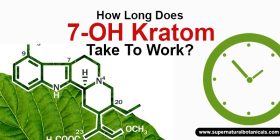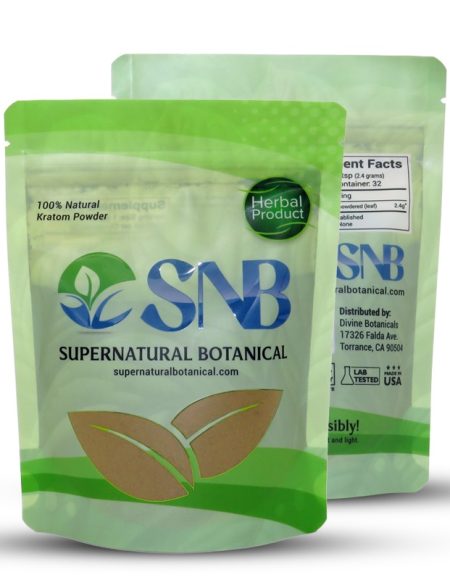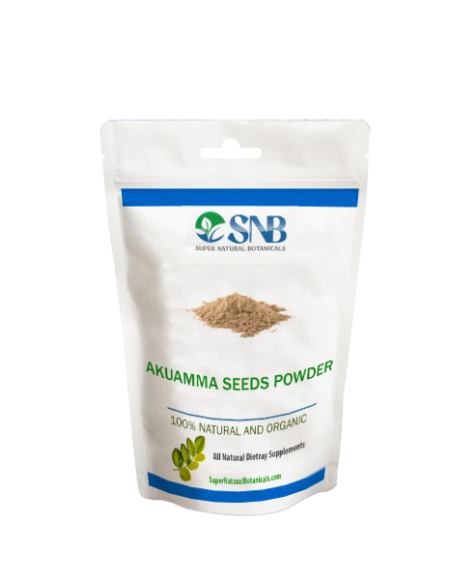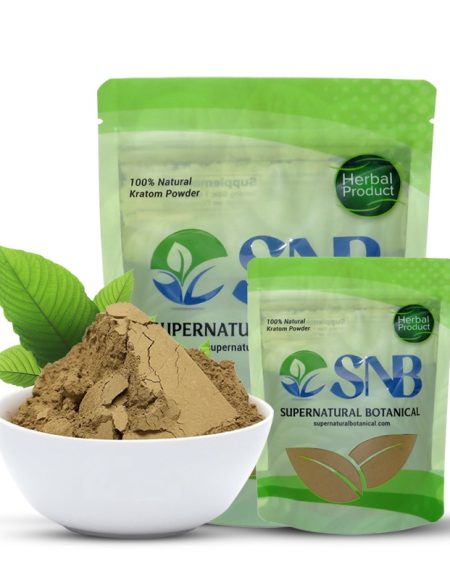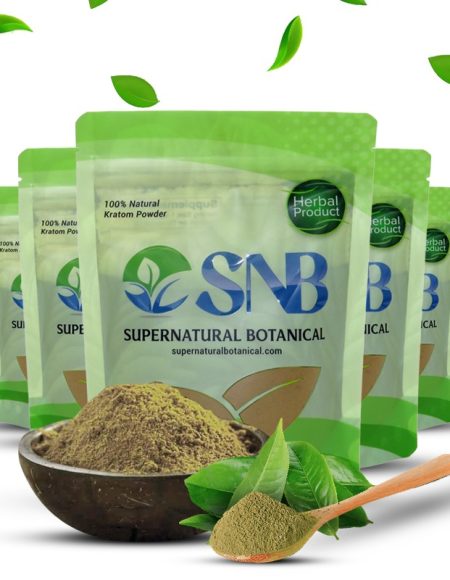Update Date: 23/01/2024
So, you’ve had a wonderful evening, enjoying several kratom shots, feeling stress-free and relaxed. You had a great time, but the next day, you wake up tired with an intense headache. If you’ve ever experienced this, you might be having an episode of kratom hangover! A kratom hangover – is it even real?
Yes, it is REAL.
While Mitragyna may offer a soothing escape from the daily grind, an over-consumption of this herb in a state of dehydration may cause a mind-numbing hangover experience.
If you’ve ever felt vomiting, nausea, annoying headaches, and anxiety after a night of kratom overindulgence, this article is for you. This piece features all the important information you need to know about kratom hangover, its potential causes, and how to recover from a headache. Keep reading till the end.
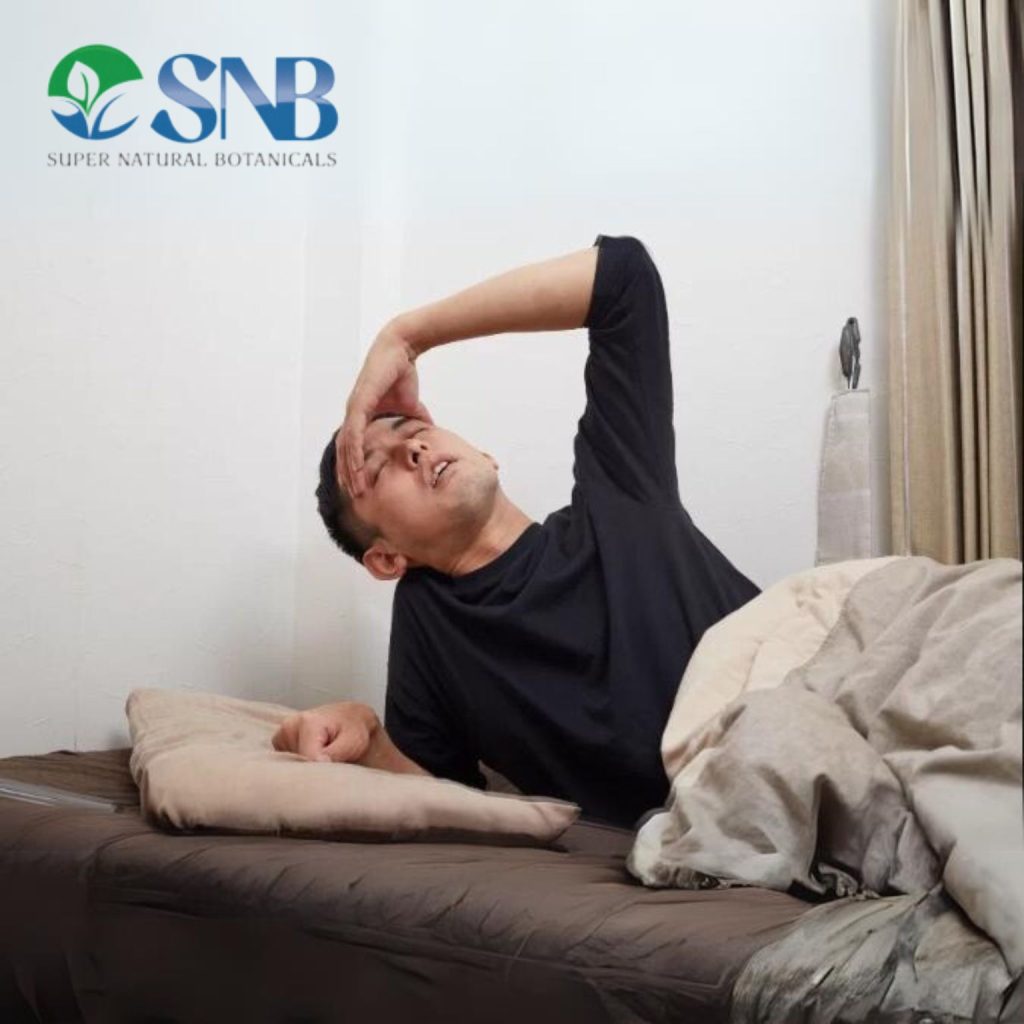
What is Kratom?
Kratom, a fascinating botanical treasure, hails from the lush rainforests of Southeast Asia. Derived from its leaves, kratom has gained popularity for its various applications. Whether brewed into a soothing tea, encapsulated for convenient consumption, or even used as a powder in culinary creations, it offers a myriad of ways to explore its effects.
Kratom’s potential effects can range from a natural energy boost and enhanced focus to a sense of calm and relaxation.
What is a Kratom Hangover, Anyway?
According to the National Institute of Alcohol Abuse and Alcoholism (NIAAA), a hangover typically occurs when you’ve consumed a bit too much substance than your system is able to handle.
Mitragyna speciosa is usually recommended in doses of 2-4 grams. As with any botanical substance, moderation is the key. You can find your sweet spot with a small dose too. Moreover, you must keep a gap of at least 10 hours if you wish to consume kratom the same day.
When you take a greater-than-usual amount of your favorite kratom strain, your body starts reacting strangely. It is because the amount consumed is not in accordance with your body’s tolerance level. When this happens, you start experiencing a kratom hangover, which may result in some undesirable symptoms.
What are the Signs & Symptoms of a Kratom Hangover?
Kratom hangovers are just as real and, fortunately, detectable. You should be on the lookout for specific signs and symptoms of hangovers – especially if you wake up confused, sick, and irritated in the morning. Keep scrolling to find out!
- Anxiety
- Appetite loss
- Lethargy
- Muscle pain
- Headache
- Vomiting, diarrhea and nausea
- Changes in the body temperature
- Dry mouth
- Mood swings
- Irritation
- Sweating and itching
- Anxiousness
Click Here To Read About Getting Rid Of Kratom Nausea
What are the Possible Causes of Kratom Hangovers?
A kratom hangover is the unwelcome side effect of overindulgence in this herb. Much like an alcohol hangover, it leaves you feeling fatigued, dizzy, and disoriented. But what causes this phenomenon? Let’s break it down:
1. Dehydration.
If you’re not drinking the recommended volume of water, you’re setting the stage for a hangover. When you’re dehydrated, your system takes longer to dilute the excessive amount of kratom, which may exacerbate kratom’s effects on dehydration, leading to headaches, dizziness, dry mouth, kratom nausea, and overall discomfort.
2. Kratom Overconsumption.
The primary cause of a kratom hangover is simply consuming too much of it. Kratom is known for its biphasic nature, which means that at lower doses, it can be stimulating and euphoric, while at higher doses, it becomes sedating. Kratom overdosage pushes you into the sedating realm, leading to the classic hangover symptoms
3. Taking Kratom on an Empty Stomach.
Many users report that consuming kratom on an empty stomach is associated with headaches and nausea. These symptoms prompt a hangover state. Therefore, it is recommended to consume speciosa on a filled stomach.
4. Taking Strong Kratom Strains.
Do you know some strong kratom strains, if consumed in high doses, may escalate to hangovers? Yes, it is true. For example, Red Bali and Red Maeng Da Kratom powder have higher potency. They should be consumed moderately. If used in quantities above moderate, these strains may cause a kratom hangover.
5. Mixing Two Sedative Strains.
Mixing two sedative strains in high doses? A big NO. Never ever try this adventure because two strains, for instance Red Maeng Da and Red Horn Kratom, can result in an intensifying hangover.
How to Recover From a Kratom Hangover?
Now, let’s get to the good part: how to get off kratom hangovers. Here are a few tips to keep k-hangovers at bay:
1. Stay Hydrated.
Water is your best friend when you’re dealing with the after-effects of Kratom. It can help flush out toxins from your system, alleviate headaches, and reduce that dreaded fatigue.
Drinking water helps maintain the body’s optimal osmotic pressures, diluting the Kratom concentration in your blood and bringing you back to life.
2. Rest and Recover.
Sometimes, the best way to bounce back from a kratom hangover is to simply rest. Take a nap, meditate, or practice deep breathing exercises to help your body and mind relax. This downtime can help you recharge and emerge feeling refreshed.
3. Eat Nutrient-Rich Meals.
Never go on hunger strike if you have a hangover! You need to recover and retrieve your energy levels as soon as possible. Eating protein-rich foods can help reduce the symptoms!
4. Start Low and Go Slow.
If you’re new to kratom or trying a new strain, start with a small dose and give your body time to adjust. Gradually increase your dose until you find your sweet spot.
5. Exercise: Sweat Out the Toxins.
Exercise pretty much solves all problems. Stretching, walking, or any other mild exercise will surely help in reducing the symptoms. By exercising, you’re releasing any built-up frustration and improving your blood circulation, which cleanses your body of toxins much faster.
6. Over-the-Counter Remedies.
If your kratom hangover symptoms are particularly bothersome, over-the-counter remedies might come to the rescue. Pain relievers, anti-nausea medications, or antacids can provide some relief from specific symptoms. Just be sure to consult a healthcare professional if you have any concerns about substance interactions.
7. Do NOT Try the ‘Hair Of The Dog’ Approach.
The “hair of the dog” approach, which involves drinking more Kratom to alleviate a kratom hangover, is not a recommended strategy. It might temporarily mask some of the symptoms, but it can lead to a cycle of dependency and make the situation worse in the long run.
Instead, opt for the recovery methods to ensure a healthier and more sustainable path to feeling your best again. Your body will thank you for it!
Kratom Hangover vs Kratom Withdrawal: What’s the Difference?
Many kratom users believe that kratom hangovers and kratom withdrawal are the same things. Well, this is not true. Let’s take a clear look!
A kratom hangover is the result of kratom overindulgence, while a withdrawal kicks in when your body decides it’s time to take a break from kratom.
What is the difference between these two kratom-related calamities?
A kratom hangover usually sets in shortly after your kratom trip ends, usually within 12-24 hours. On the other hand, withdrawals are the after-effects of long-term kratom use. They typically kick in when you haven’t taken kratom for a day or longer.
Kratom Hangover vs Kratom Overdose:
There is a very thin line that distinguishes kratom hangovers with kratom overdose because their symptoms often overlap with each other. Both conditions can be dangerous and may need urgent medical assistance. However, it is essential to differentiate both terms.
Kratom hangover is the collection of symptoms that you experience the day after using kratom. While kratom overdose is a more serious matter. A kratom overdose occurs when you’ve ingested an excessive amount of kratom, leading to unpleasant and potentially dangerous symptoms.
The symptoms of kratom overdose include:
- Faster heart rate
- Delirium/Coma
- Severe agitation
- Severe drowsiness
- Mild seizure
- Hypertension
The key difference between a kratom hangover and an overdose is the severity of symptoms. While a hangover is uncomfortable but usually not life-threatening, an overdose can be a medical emergency.
Click Here To Read About Kratom Dosage Chart: How Much Kratom Should You Take?
Rare Side Effects of Kratom:
When Kratom is used with pharmaceuticals, it has been observed to induce severe headaches and communication difficulties, such as in a delirious state. The substance has also been discovered in newborn babies, implying that it can be passed from mother to kid via the placenta or breast milk. Pregnant moms and those with a medical history should take the stimulant as tea and use it in moderation.
Final Thoughts:
Kratom hangovers are an unpleasant reminder that moderation is essential, even with natural remedies. If you’ve experienced a kratom hangover, you’re not alone. The key to recovery lies in hydration, rest, and self-care. Additionally, preventing future hangovers is achievable by practicing responsible consumption and staying informed about the various strains of kratom.
Remember, a kratom hangover is the result of overconsumption, so take the time to understand your body’s limits and enjoy the benefits of kratom without the morning-after blues.
References:






